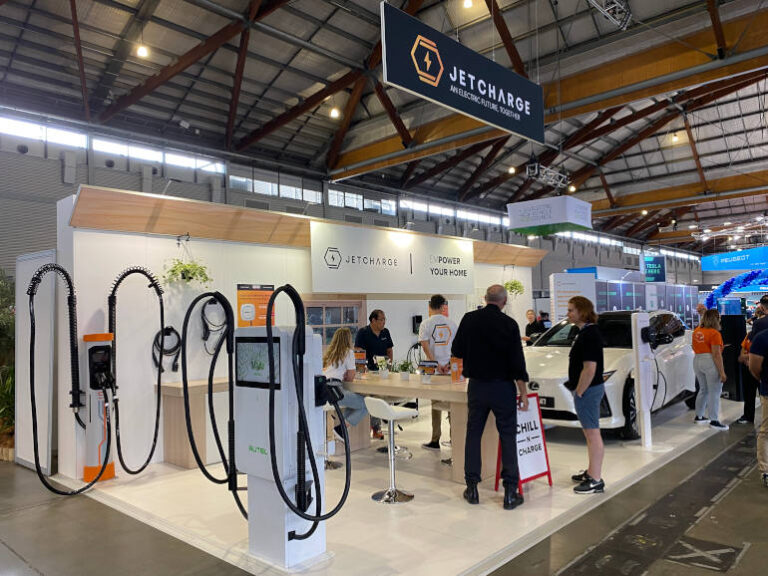During the Everything Electric Show held in Sydney during February, I caught up with Ellen Liang, Co-Founder at Jet Charge, for a quick chat about the second-wave of EV enthusiasts, and the long road ahead for Fleet Managers tasked with designing and building charging infrastructure as their fleet transitions to electric cars.
It’s the second year at Everything Electric for Jet Charge, how have you found the audience after the first day?
I think the people you see, and we were already starting to see it at the first Fully Charged, is now beyond the early adopter market. We’re definitely getting into the early majority. We just had Geof Alexander, our Chief Product Officer on stage talking about how we do personas. At one stage, we were designing for Bobs, and Bobs were your classic early adopters. Every second on the energy app trying to work out what the energy consumption is. But now we’re starting to design for Carols. And Carols are the people who just want convenience. And I think you’re seeing that on the ground as you talk to people that the clientele is changing.
So it feels like we’ve got electric cars sorted out. Everyone’s happy with EVs now. They know how they work though range anxiety is still there. But cars are sorted. It appears to me that infrastructure is the area where people need education. Are you finding that as well?
This is a consumer show. So a lot of consumers are here, and I think they’re actually getting well educated on charging, apartments are maybe a different story. But the big one is actually fleets; when we try to get fleets to transition, to electrify.
The latest survey from AfMA was saying that charging infrastructure is the biggest barrier that they see to electrification. So I think that education process that we started with consumers at the first Fully Charged, and even before that event, that same education needs to occur with fleets.
And you’ve changed the game at Jet Charge because you’re offering Charging as a Service (CASS). How’s that been received by fleets?
It’s been fantastic! Because this goes to the designing products to make it simple. Our value proposition is basically, this product is cheaper than the petrol cost of running your fleet. And so, you have all these other imperatives because of carbon accounting, accounting standards changes because of sustainability commitments, you need to do it. So here’s a moral and economic reason why you should. So I think it’s a no brainer. We’re in talks with a lot of different fleets
When they see Charging as a Service versus the capital investment, does a light bulb go on? Do they see how they can accelerate the electrification journey with this opportunity?
It’s different for different companies. But certainly there’s a huge portion where they just don’t have the balance sheet to do this kind of electrification, and that’s where Charging as a Service works.






